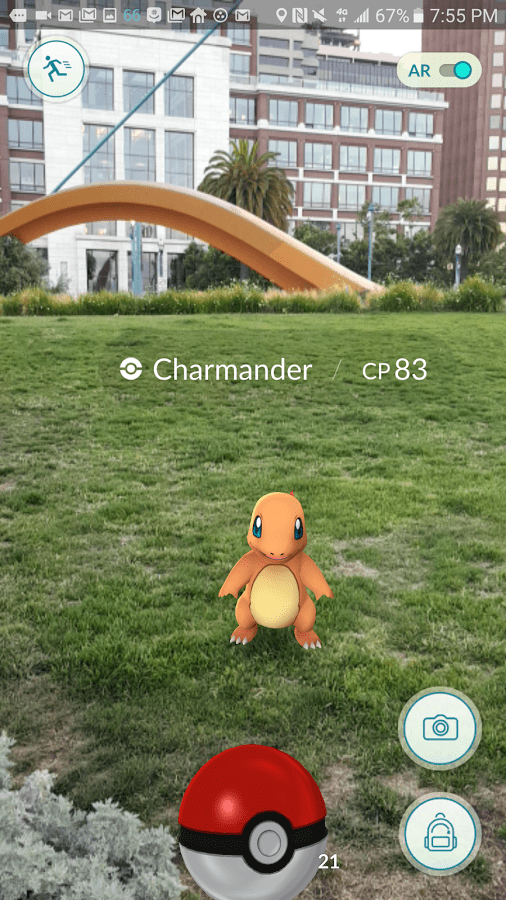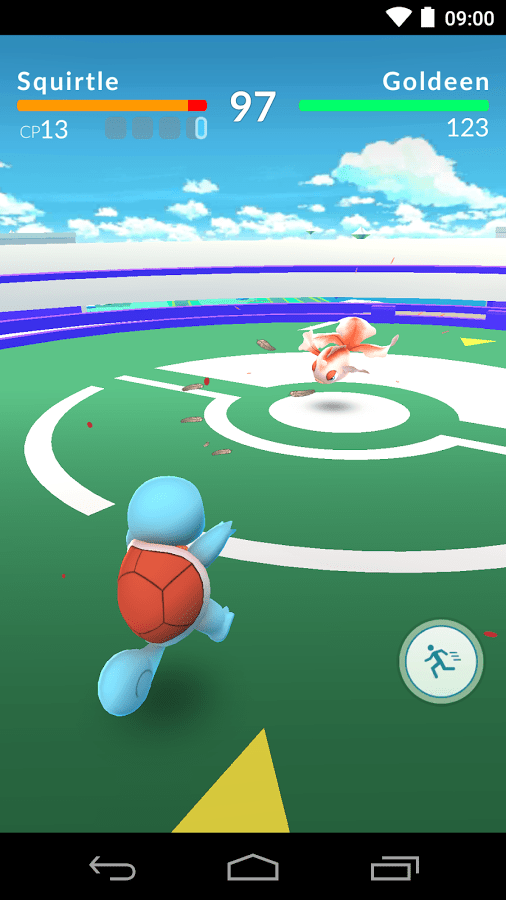It isn’t available in all markets yet, but considering that the roll-out has just begun, if you haven’t seen it yet you should in the very near future. It can be downloaded from the Google Play Store and the App Store.
Pokémon Go was developed as a collaboration between Nintendo and Niantic Labs, and uses the smartphone’s camera, sensors, and location to put Pokémon in various locations in the real world. That’s right — to play this game you’ll have to get off your butt and actually go outside! As you travel to different landmarks and locations in your city, you’ll run into wild Pokemon, train them, and battle with them at gyms.
The game itself is free, though it does have micro-transactions costing between $1 and $100. And if you’re really serious you can buy a $35 wearable that will let you play it without having to actually unlock your phone.
The release is somewhat of a surprise: Nintendo and Niantic have kept quiet about a specific release date. Hints were dropped during E3 that it might make it to the public some time in July, so the release will be a nice surprise for those eager to try their hand at the new augmented reality game.
As mentioned, the game isn’t available around the world just yet, but you should be able to get it at some point in the near future. Just watch what you say while you wait.
Download for iOS Download for Android
Editors' Recommendations
- iOS 18 could make my iPhone look like Android, and I hate it
- Epic still plans to bring its Games Store to iOS and Android this year
- I need this iOS concept feature on my iPhone right now
- iOS 17’s coolest new feature is horrible news for Android users
- iOS 17 is official, and it’s going to totally change your iPhone







